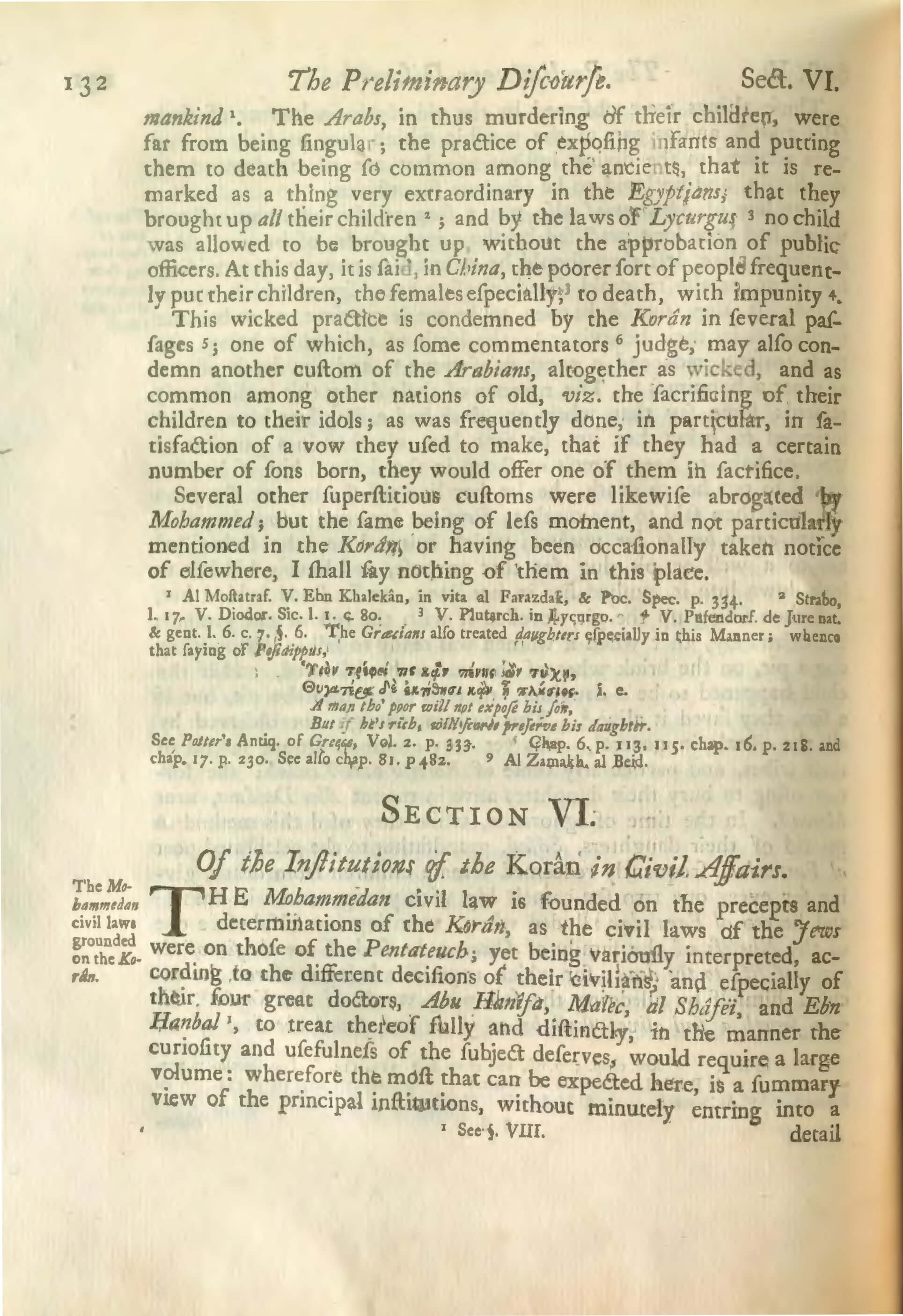George Sale, The Koran, commonly called the Alcoran of Mohammed, translated into English immediately from the original Arabic; with Explanatory Notes, taken from the most approved Commentators. To which is prefixed A Preliminary Discource (1734)
mankind 1. The Arabs, in thus murdering of their children, were far from being singular; the practice of exposing infants and putting them to death being so common among the ancients, that it is remarked as a thing very extraordinary in the Egyptians, that they brought up all their children 2; and by the laws of Lycurgus 3 no child was allowed to be brought up, without the approbation of public officers. At this day, it is said, in China, the poorer sort of people frequently put their children, the females especially, to death, with impunity 4.
This wicked practice is condemned by the Korân in several passages 5; one of which, as some commentators 6 judge, may also condemn another custom of the Arabians, altogether as wicked, and as common among other nations of old, viz. the sacrificing of their children to their idols; as was frequently done, in particular, in satisfaction of a vow they used to make, that if they had a certain number of sons born, they would offer one of them in sacrifice,
Several other superstitious customs were likewise abrogated by Mohammed; but the same being of less moment, and not particularly mentioned in the Korân, or having been occasionally taken notice of elsewhere, I shall say nothing of them in this place.
Section VI.
The Mohammedan civil laws grounded on the Korân.
The Mohammedan civil law is founded on the precepts and determinations of the Korân, as the civil laws of the Jews were on those of the Pentateuch; yet being variously interpreted, according to the different decisions of their civilians, and especially of their four great doctors, Abu Hanîfa, Malec, al Shâfeï, and Ebn Hanbal 1, to treat thereof fully and distinctly, in the manner the curiosity and usefulness of the subject deserves, would require a large volume: wherefore the most that can be expected here, is a summary view of the principal institutions, without minutely entring into a
1 Al Mostatraf. V. Ebn Khalekân; in vita al Farazdak, & Poc. Spec. p. 334.
2 Strabo, l. 17. V. Diodor. Sic. l. 1. c. 80.
3 V. Plutarch. in Lycurgo.
4 V. Pufendorf. de Jure nat. & gent. l. 6. c. 7. §. 6. The Græcians also treated daughters especially in this Manner; whence that saying of Posidippus,
θυγατέρα δε εκτίμηση κάν ή πλύσιος. i.e.
But if he’s rich, will scarce preserve his daughter.
See Potter’s Antiq. of Greece, Vol. 2. p. 333.
5 Chap. 6. p. 113, 115. chap. 16. p. 218. and chap. 17. p. 230. See also chap. 81. p 482.
9 Al Zamakh. al Beid.
1 See §. VIII.
